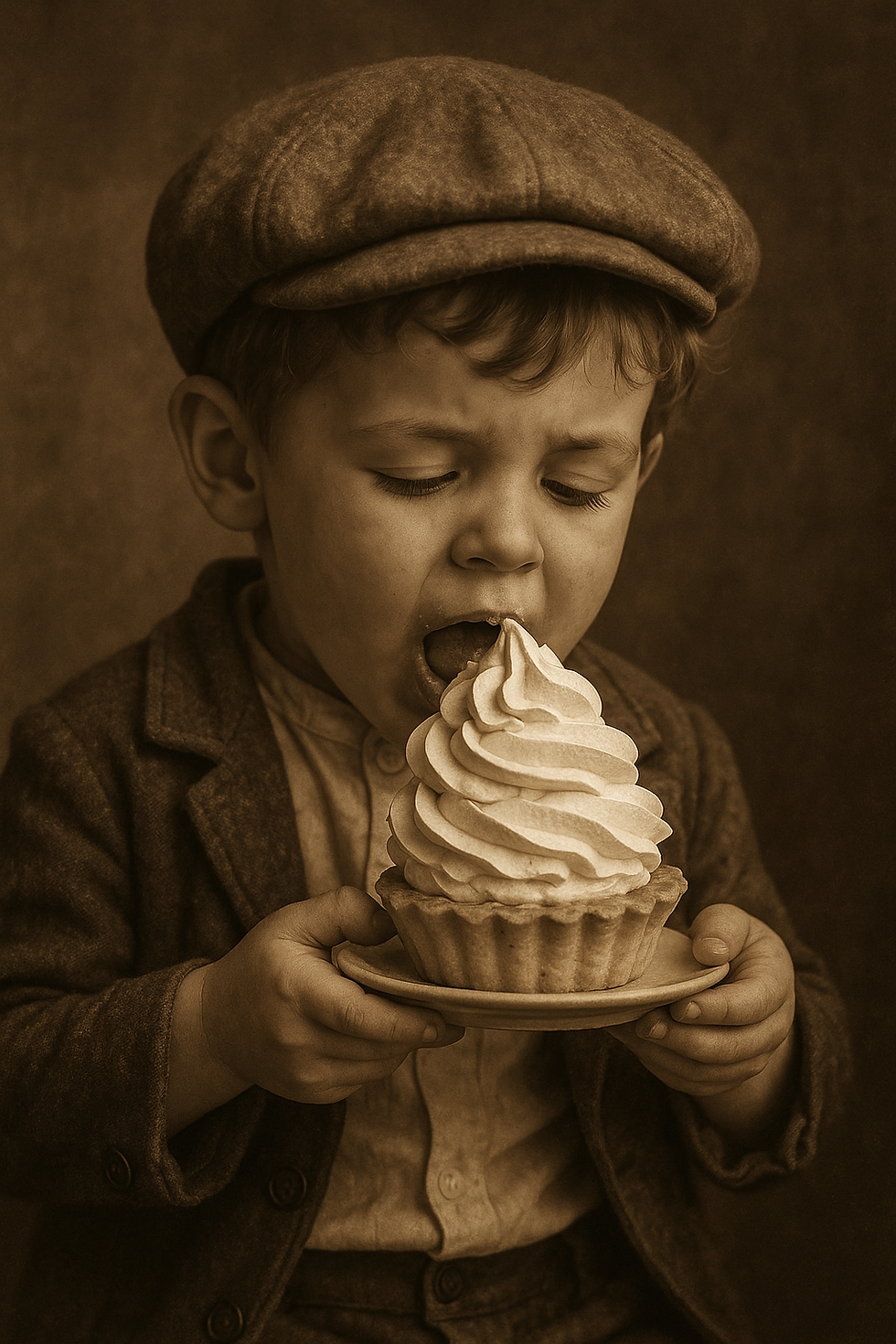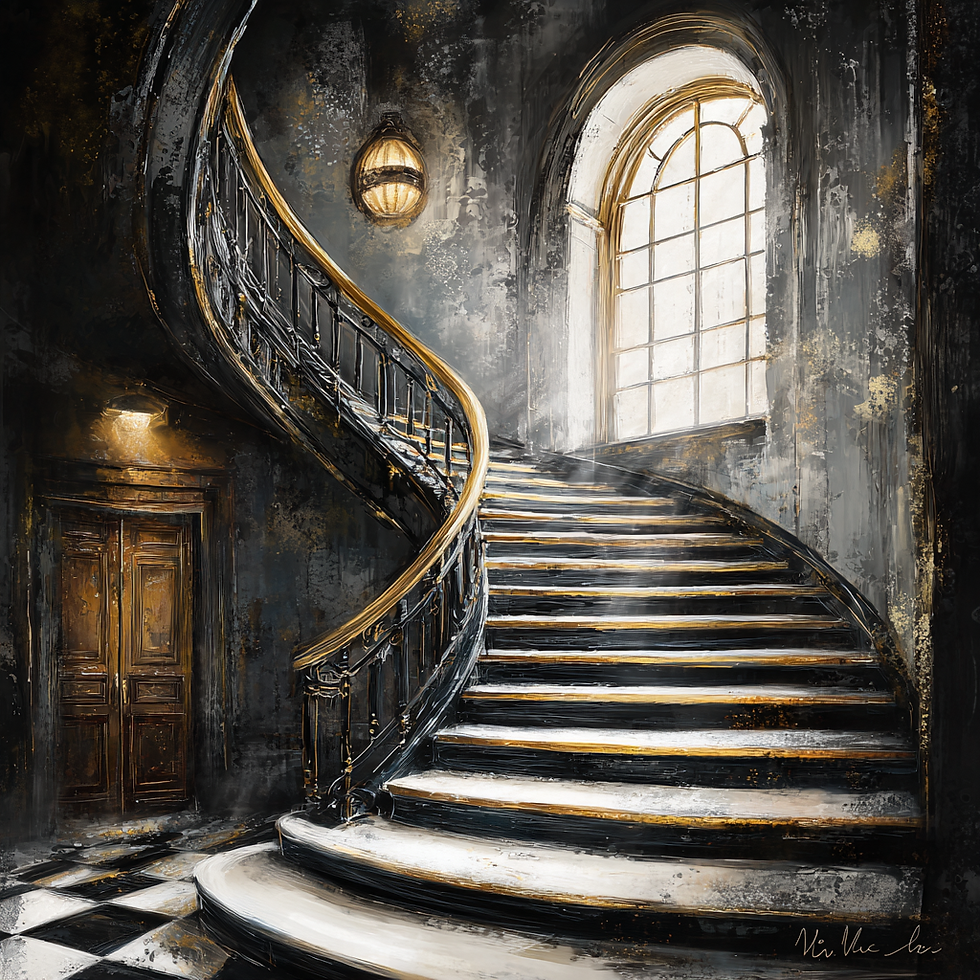Tales of an Ancient Child
- carmen fernandez de cordoba
- Sep 9, 2025
- 2 min read

Gonzalo was born in Seville, and his earliest memories are tied to the military sounds that blended into the very air of everyday life.
For a child, the sound of trumpets and drums might announce a festival or celebration; for him, it meant his father’s return, and with it, the tension of discipline.
His first memories are marked by severity, by the sense that every gesture had to be measured, every mistake punished.
School was no safer space. The priests imposed themselves with punishment as their method, and violence was so commonplace it ceased to be surprising. In that environment, the lesson was to survive, to stay silent, and to instinctively recognize who was worthy of trust.
Within this rigid world, he found meaning in mathematics, which became his favorite subject—surely because it was a territory where rules were clear and not subject to human whim.
His childhood was, above all, training in silence. Neither at home nor at school was there space for communication. Suffering was never spoken of; there were always graver things that his parents’ generation had faced: war, loss, the fear of not surviving. Everything was put into perspective, and a child’s pain seemed small. Tears had no place when there was no expectation of timely answers or words of comfort.
The years passed, and that fatherly figure, who as a child had inspired fear, began to take on another shade. He discovered the decorated soldier, the man loyal to his battalion, the generous brother who helped secure his sisters’ future. He also learned that, in his career, he had chosen honesty over blind obedience, and he understood that behind the severe father stood a man scarred by the harshness of war, a man trapped in that hardness, likely left without answers to so much senselessness.
The childhood fear gradually transformed into a kind of silent respect.
Explicit reconciliations were never needed; it was enough to understand that each era molds people in different ways.
Now, as a nonagenarian, he looks at the younger generations with a mix of wonder and gentle envy. He is surprised by the ease with which young people today express what they feel—something unthinkable in his childhood.
He recognizes that they live freer, less bound by rigid appearances, more in control of their own destiny. And although he smiles at the speed with which everything changes, he knows that the essential remains: the need for trust, for companionship, and for that someone to lean on.
The memory of that ancient child who devoured meringue cakes still lives within him. A child who learned through silence and authority in excessive times, but who, over the years, found in humor, in friendship, and in a serene gaze toward the past, a way of inhabiting life without resentment.
In that transition—from child to man, from fear to respect—lies the true legacy he wishes to pass on: each generation lives under the weight of its own time, and only when that weight is understood can one look forward without bitterness.
CFC



Comments